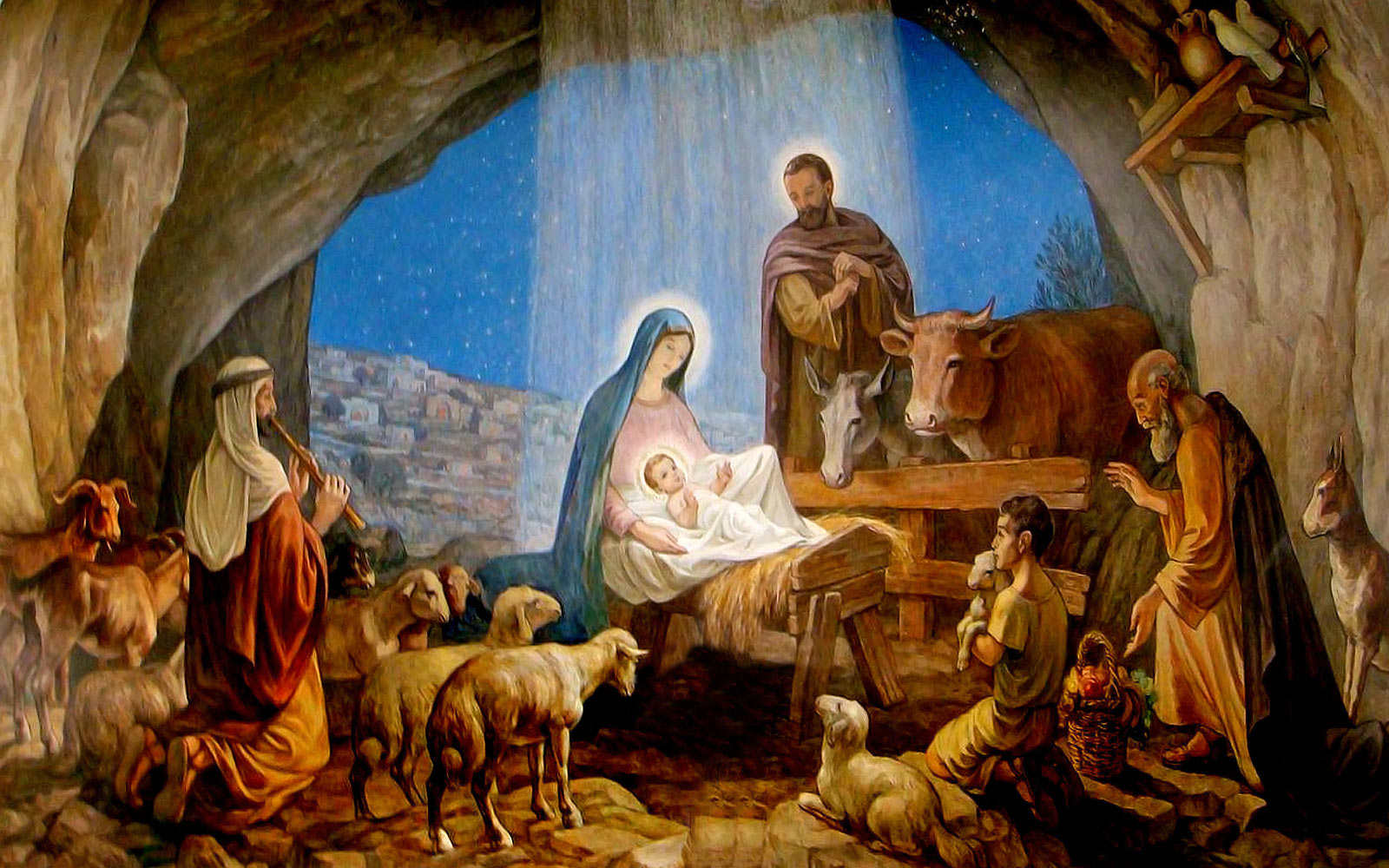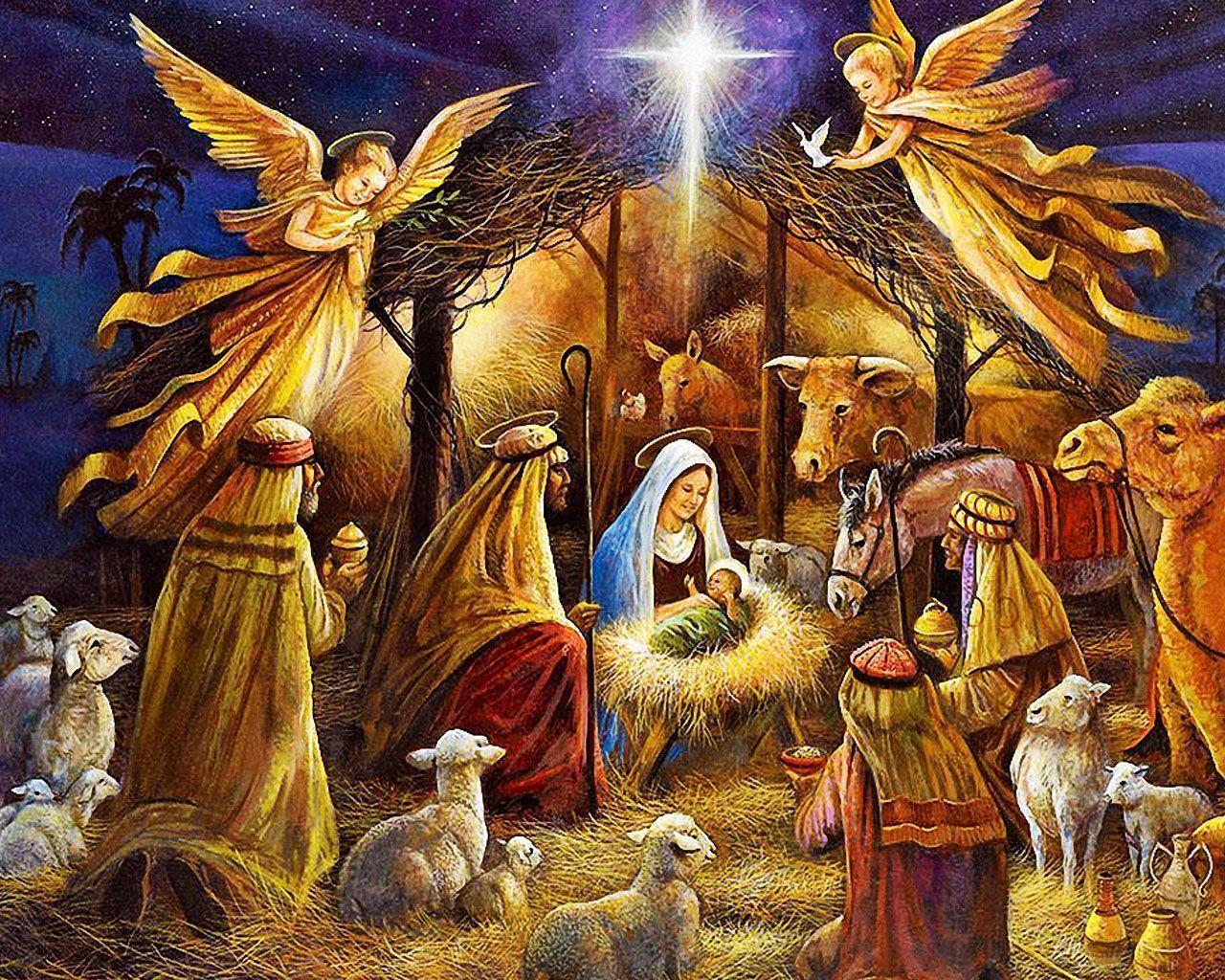Where Jesus was born is a question that has intrigued scholars, theologians, and believers for centuries. The birthplace of Jesus Christ, a pivotal figure in Christianity, holds immense significance not only in religious contexts but also in historical and cultural narratives. This article delves deep into the location of Jesus' birth, exploring the city of Bethlehem, its historical background, and the profound impact it has had on millions around the world.
The story of Jesus’ birth, as narrated in the Gospels of Matthew and Luke, sets the stage for understanding why Bethlehem is revered as a holy site. This small town, located just a few miles south of Jerusalem, has become a pilgrimage destination for Christians and a focal point of religious tourism. In this article, we will examine the archaeological evidence, the cultural significance, and the current relevance of Bethlehem as the birthplace of Jesus.
As we journey through the history and significance of Bethlehem, we invite readers to reflect on the impact of Jesus' birth on both historical events and contemporary faith. Whether you are a believer, a historian, or simply curious about this captivating topic, this exploration of where Jesus was born promises to be both enlightening and inspiring.
Table of Contents
- 1. The Historical Context of Bethlehem
- 2. The Biblical Account of Jesus’ Birth
- 3. Archaeological Evidence Supporting Bethlehem as the Birthplace
- 4. The Cultural Significance of Bethlehem Today
- 5. Pilgrimages to Bethlehem: A Journey of Faith
- 6. Current Challenges Facing Bethlehem
- 7. The Impact of Jesus' Birth on Christianity
- 8. Conclusion: The Continuing Legacy of Bethlehem
1. The Historical Context of Bethlehem
To understand where Jesus was born, we must first explore the historical context of Bethlehem. This city has roots that stretch back thousands of years, making it a significant location in both Jewish and Christian histories.
The Ancient City of Bethlehem
Bethlehem, known as "Beth Lehem" in Hebrew, translates to "House of Bread." This name is fitting, considering its agricultural landscape and the fertile lands surrounding it. Historically, Bethlehem was a small but vibrant town that played a crucial role in the lineage of King David, adding to its importance in Jewish tradition.
Significant Events in Bethlehem's History
- Birthplace of King David – A pivotal figure in Jewish history.
- Site of the Biblical Ruth and Boaz’s story – Signifying loyalty and love.
- Prophecies of the Messiah – Foretelling Jesus’ birth in Bethlehem.
2. The Biblical Account of Jesus’ Birth
The nativity story is beautifully illustrated in the Gospels of Matthew and Luke. These accounts provide insight into the circumstances leading to Jesus' birth.
The Journey to Bethlehem
The Gospels narrate that Mary and Joseph traveled to Bethlehem due to a census ordered by the Roman Emperor Augustus. This journey was critical, as it fulfilled Old Testament prophecy regarding the birthplace of the Messiah.
The Nativity Scene
Upon arriving in Bethlehem, Mary gave birth to Jesus in humble surroundings, often depicted as a stable or cave, due to the lack of lodging. This setting highlights the humble beginnings of a figure who would have a monumental impact on the world.
3. Archaeological Evidence Supporting Bethlehem as the Birthplace
Archaeological findings have played a significant role in affirming Bethlehem's status as the birthplace of Jesus. Numerous excavations in the area have revealed artifacts and structures that provide context to the biblical narratives.
Key Archaeological Discoveries
- The Church of the Nativity – Built over the traditional site of Jesus’ birth, this church is one of the oldest continuously functioning churches in the world.
- Ancient Tombs and Artifacts – Discoveries in the vicinity have revealed tombs dating back to the time of Jesus, providing a tangible connection to the period.
Significance of these Findings
The archaeological evidence not only supports the biblical narrative but also emphasizes Bethlehem's historical importance as a pilgrimage site for early Christians.
4. The Cultural Significance of Bethlehem Today
Today, Bethlehem is more than just a historical site; it is a vibrant city rich in culture and faith. The cultural significance it holds is profound.
Religious Diversity
While Bethlehem is predominantly Christian, it is also home to a significant Muslim population, reflecting the city’s diverse heritage. This coexistence contributes to a rich tapestry of cultural practices, festivals, and traditions.
Modern-Day Celebrations
- Christmas Celebrations – Bethlehem hosts numerous festivities during the Christmas season, drawing pilgrims and tourists from around the globe.
- Art and Music Festivals – Local artists and musicians showcase their talents, highlighting the vibrant culture of Bethlehem.
5. Pilgrimages to Bethlehem: A Journey of Faith
For many believers, visiting Bethlehem is a spiritual pilgrimage that holds deep personal significance. The journey to the birthplace of Jesus is often seen as a way to connect with faith on a profound level.
The Pilgrimage Experience
Visiting Bethlehem allows pilgrims to walk in the footsteps of Jesus, offering an opportunity for reflection and prayer. Many choose to visit the Church of the Nativity, where they can experience the sacred atmosphere of this historic site.
Significance of Pilgrimages
- Spiritual Growth – Many pilgrims report experiencing a deep sense of peace and spiritual renewal.
- Community and Fellowship – Pilgrimages often include group travel, fostering connections among individuals with shared faith.
6. Current Challenges Facing Bethlehem
Despite its rich history and cultural significance, Bethlehem faces several challenges that impact its community and economy.
Political and Economic Issues
The ongoing Israeli-Palestinian conflict has led to political instability, affecting tourism and local businesses. Many residents rely on tourism for their livelihood, making these issues particularly pressing.
Preservation of Heritage
- Maintaining historical sites – Efforts are being made to preserve the integrity of significant landmarks.
- Supporting local communities – Initiatives aimed at boosting the local economy are crucial for the sustainability of Bethlehem.
7. The Impact of Jesus' Birth on Christianity
The birth of Jesus in Bethlehem marks a turning point in history, with profound implications for the development of Christianity.
Transformative Teachings
Jesus’ life and teachings, rooted in love, compassion, and forgiveness, have shaped the moral and ethical framework of millions. His birth signifies hope and the promise of redemption.
Global Influence of Christianity
- Spread of Christianity – From its humble beginnings in Bethlehem, Christianity has grown to become one of the world's largest religions.
- Interfaith Dialogue – Jesus' teachings promote understanding and respect among diverse faiths.
8. Conclusion: The Continuing Legacy of Bethlehem
Where Jesus was born in Bethlehem continues to resonate with meaning and significance today. The city stands as a testament to faith, history, and the enduring impact of Jesus’ teachings. As we reflect on the rich tapestry of events, culture, and faith surrounding Bethlehem, we invite readers to engage with this legacy.
We encourage you to leave your thoughts in the comments, share this article with friends, and explore more about the fascinating history and significance of Bethlehem and its role in shaping the world as we know it today.
Thank you for joining us on this exploration of where Jesus was born. We look forward to welcoming you back for more insights and discussions on topics that matter.


